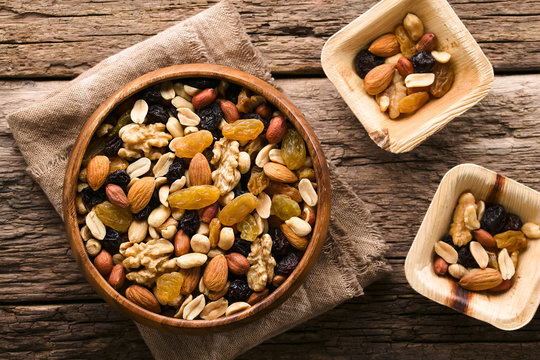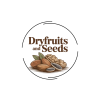Which dry fruits are best for muscle?

Muscle building isn’t just about lifting weights—it’s also about fueling your body correctly. Which dry fruits are best for muscle? That’s a question many fitness buffs and beginners alike ask. Dry fruits, also known as nuts and seeds, are not only delicious but packed with nutrients like protein, healthy fats, vitamins, and minerals. In this article, we’ll explore the top options, give real-life examples, and explain how they support muscle growth.
1. Almonds – The muscle builder’s ally
Almonds are often the first nut that comes to mind when someone asks which dry fruits are best for muscle. With around 21g protein per 100g, almonds are a protein‑rich dry fruit ideal for recovery and muscle maintenance mevabite.com+1nutraj.com+1nutraj.com+4fruitsmith.com+4shaktidryfruits.com+4. They’re also full of vitamin E and magnesium—nutrients that help reduce muscle soreness and support energy metabolism .
Real-life example:
Ravi, a 16‑year‑old athlete, eats a handful of almonds after soccer practice to help his muscles recover and reduce cramps.
2. Peanuts – Legume with power
Although technically a legume, peanuts have the most protein among these options—about 26g per 100g fruitsmith.com+1shaktidryfruits.com+1. That makes them top-tier among high‑protein nuts and seeds. Peanuts also provide B‑vitamins and healthy fats, making them one of the best nuts for muscle recovery glamour.com+13eatingwell.com+13verywellhealth.com+13.
Real-life example:
Ankita, a 17‑year‑old runner, adds peanut butter to her post‑workout smoothie for extra protein and taste.
3. Pistachios – The complete protein pack
Pistachios offer around 20g of protein per 100g and are unique for being a complete protein—containing all nine essential amino acids mevabite.com+1redcliffelabs.com+1fruitsmith.com+1healthymaster.in+1. Their antioxidants and fiber also help reduce inflammation. They’re a top choice for muscle‑building dry fruits.
Real-life example:
Shaan eats a handful of pistachios as a dry fruit pre‑workout snack to get energy without feeling heavy.
4. Cashews – Creamy and nutritious
Cashews contain about 18g of protein per 100g, making them another excellent protein‑rich dry fruit healthymaster.in+7fruitsmith.com+7nutraj.com+7. They’re rich in magnesium and zinc, minerals crucial for muscle function and energy production shaktidryfruits.com+14vogue.com+14verywellhealth.com+14.
Real-life example:
Leena adds cashews to her post-training bowl of yogurt and fruit for a delicious post‑workout dry fruit mix that keeps her full and fuels recovery.
5. Walnuts – Recovery with omega‑3
Walnuts offer about 15g protein per 100g, and what sets them apart is their high omega‑3 fatty acids, which fight inflammation redcliffelabs.comhealthymaster.in+3fruitsmith.com+3shaktidryfruits.com+3. This makes them one of the best nuts for muscle recovery.
Real-life example:
Ankit sprinkles crushed walnuts on his evening oatmeal. He says they help reduce joint soreness after strength training.
6. Sunflower & pumpkin seeds – Seeds that shine
Seeds like sunflower and pumpkin are often overlooked, but they’re among the top high‑protein nuts and seeds. Sunflower seeds have ~21g protein/100g, while pumpkin seeds lead with around 30g/100g fruitsmith.com+4nutraj.com+4shaktidryfruits.com+4. These seeds are rich in zinc, magnesium, and antioxidants—great for immune health and energy‑boosting dried fruit snacks.
Real-life example:
Neha adds sunflower seeds to her salad and pumpkin seeds to her homemade granola for daily protein and crunch.
7. Chia and flax seeds – Tiny but mighty
Chia seeds have ~17g protein and flax seeds ~18g per 100g shaktidryfruits.com. They bring omega‑3s and fiber, supporting heart health and healthy fats for muscle growth. Add them to smoothies or snacks for a nutrient boost.
Real-life example:
Rahul mixes chia seeds into his morning overnight oats for protein and slow‑release energy through school and evening gym sessions.
8. Brazil, hazelnuts & pecans – Additional nutrient gold
- Brazil nuts (~14g protein): High in selenium, which aids immunity and thyroid health healthymaster.in+1realsimple.com+1.
- Hazelnuts (~15g) and pecans (~9g): Rich in antioxidants and healthy fats nutraj.com.
While their protein isn’t as high, they provide trace minerals and fats that support overall muscle and health goals.
Real-life example:
Meera adds a mixed nut blend—including brazil nuts, hazelnuts, pecans—to her trail mix for both taste and nutrients.
Why these dry fruits matter for muscle building
- Muscle Repair & Growth
Protein-rich nuts and seeds supply amino acids necessary for building and repairing muscles after workouts shaktidryfruits.com+6fruitsmith.com+6mevabite.com+6shaktidryfruits.com. - Sustained Energy
Healthy fats combined with protein and fiber provide steady energy release—perfect for workouts and recovery redcliffelabs.com. - Inflammation Control
Omega‑3s in walnuts, chia seeds, and flax reduce swelling and muscle soreness nutraj.com. - Minerals & Antioxidants
Magnesium, zinc, vitamin E, selenium—all found in these dry fruits—support muscle function, immune health, and reduce exercise-induced oxidative stress healthymaster.in.
When to eat them
- Pre‑workout: Dates or raisins offer quick energy. Combine them with pistachios for a balanced dry fruit pre‑workout snack healthymaster.in+4mevabite.com+4redcliffelabs.com+4.
- During workout: Avoid nuts—stick to easily digestible seeds or fruit.
- Post‑workout: Choose almonds, cashews, peanuts, or a mixed nut blend for a post‑workout dry fruit mix that supports muscle repair redcliffelabs.com+1vogue.com+1.
- All day: Munch on nuts like walnuts, hazelnuts, or seeds between meals to support ongoing muscle maintenance and energy.
How to include them
- Easy snack: Carry small portions in zip bags for school or the gym.
- Smoothie boosters: Blend in peanut butter, chia seeds, or almond milk.
- Yogurt toppings: Add a mix of nuts/seeds and fruit.
- Homemade bars: Combine dates, nuts, and seeds to make energy bars.
- In meals: Sprinkle seeds on salads, oats, or bake with chopped nuts.
Real-life success story
When 15‑year‑old Sameer began weight training, his coach emphasized proper diet. He added a daily mix of almonds, pistachios, peanuts, whey, and flax seeds. Within two months, he noticed reduced muscle soreness and improved stamina during basketball games.
Summary
Which dry fruits are best for muscle? Based on protein content, muscle-repair benefits, and healthy fats, the top picks are:
- Peanuts – highest protein (~26g)
- Almonds – anti‑inflammatory, muscle-supportive (~21g)
- Pistachios – complete protein (~20g)
- Cashews – magnesium-rich (~18g)
- Walnuts – omega‑3 source (~15g)
- Sunflower, pumpkin, chia & flax seeds – protein, fiber, and healthy fats
These muscle‑building dry fruits are versatile, tasty, and easy to include in your daily routine. They support workout nutrition snacks, healthy fats for muscle growth, and balanced recovery when eaten thoughtfully.
FAQ
Q: Can I eat only dry fruits to build muscle?
A: They’re a great source of plant protein and healthy fats, but should complement whole grains, dairy, legumes, poultry, eggs, and fish for complete nutrition.
Q: How much should I eat daily?
A: Stick to 25–50g of nuts or seeds to balance benefits with calorie intake.
Q: Are roasted/salted nuts okay?
A: Lightly roasted nuts are fine. Avoid heavy salt, added sugar, or coatings. Go for raw or unsalted varieties when possible.

